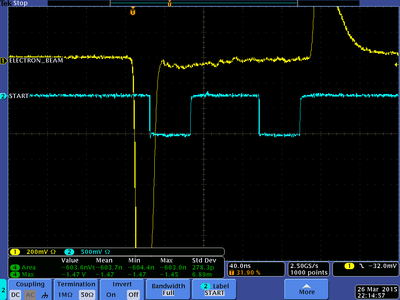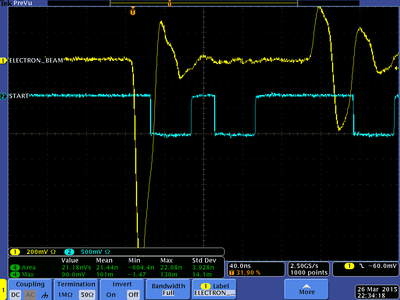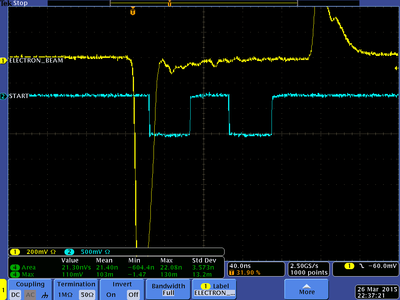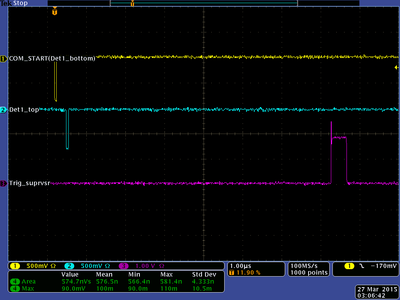Difference between revisions of "03-27-2015"
Jump to navigation
Jump to search
| Line 20: | Line 20: | ||
|- | |- | ||
|4502 || Cosmic rays test, DAQ is triggered by Det #1 (bottom, multihit TDC9), HV(Det#1) was reduced to -1150 V, LED threshold on the signal coming from the top of Det#1 (multihit TDC8) was set to 255 mV (30 mV all others) and fed into CAEN N93B Dual Timer. The pulse width was increased by the timer to 60 ns. Let's see where in the timing spectrum of the second hits we can observe the spikes due to the ringing. | |4502 || Cosmic rays test, DAQ is triggered by Det #1 (bottom, multihit TDC9), HV(Det#1) was reduced to -1150 V, LED threshold on the signal coming from the top of Det#1 (multihit TDC8) was set to 255 mV (30 mV all others) and fed into CAEN N93B Dual Timer. The pulse width was increased by the timer to 60 ns. Let's see where in the timing spectrum of the second hits we can observe the spikes due to the ringing. | ||
| + | |||
| + | [[File:cosmic_runtest_increased_stopwidth.png | 400 px]] | ||
| + | |||
|} | |} | ||
Revision as of 20:27, 27 March 2015
Investigation of the nature of the secon peak in the second hit mode.
1. LED is in non-updating mode, 30 mV threshold, 40 ns pulse width:
2. LED is in updating mode (in hope to get rid of the second pulse), 30 mV threshold, 40 ns pulse width:
Second pulse is still there.
Another case of the second pulse appearance (same conditions):
| Run # (multihit data) | Description |
| 4502 | Cosmic rays test, DAQ is triggered by Det #1 (bottom, multihit TDC9), HV(Det#1) was reduced to -1150 V, LED threshold on the signal coming from the top of Det#1 (multihit TDC8) was set to 255 mV (30 mV all others) and fed into CAEN N93B Dual Timer. The pulse width was increased by the timer to 60 ns. Let's see where in the timing spectrum of the second hits we can observe the spikes due to the ringing. |



